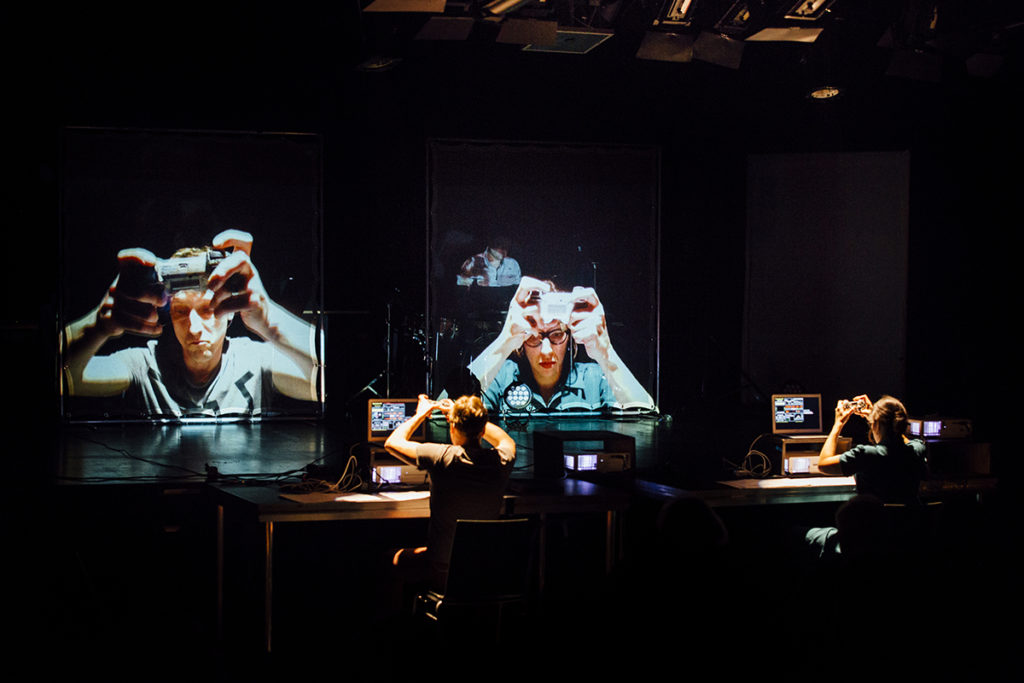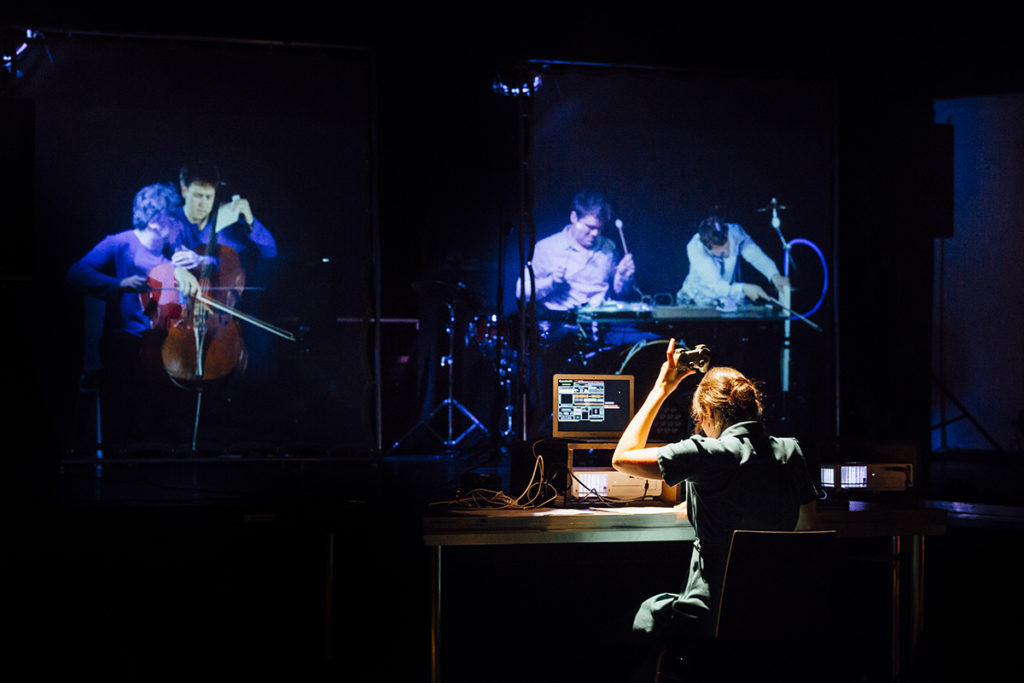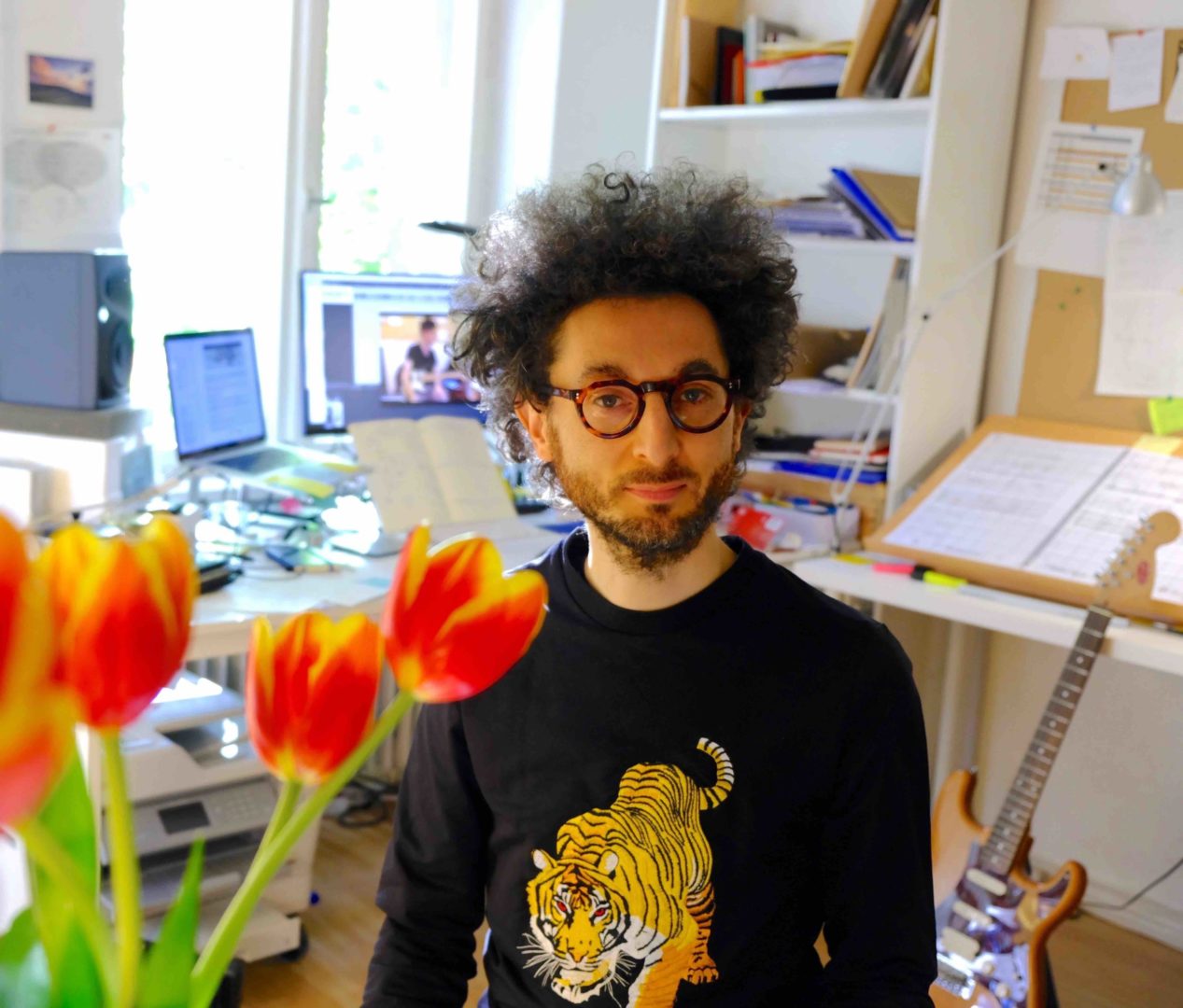Alex Ross, The New Yorker, 12/11/2012
“Nothing made a deeper impression than ‘Generation Kill’, an explosive synthesis of live and electronic sound by Belgian composer Stefan Prins. In a program note, Prins reported that he had been pondering intersections of technology and global conflict: American soldiers in Iraq revving themselves up with video games, Arab Spring insurgents communicating via Facebook, drones operated by remote control. Rather than pasting such portentous themes onto the surface of a work, Prins found a way to embody them organically. Four members of the Nadar Ensemble, playing violin, cello, electric guitar, and percussion, were postioned behind transparant screens; facing them were four performers with PlayStation video-game controllers. These devices allowed for the recording, replay, and manipulation not only of sounds but also of images: the players had to compete with superimposed, sometimes sped-up video projections of what they had been doing moments before.
The result was mind-bending, and not in druggy, blissed-out way. As the composer intended, it was disturbingly difficult to tell what was real and what was virtual. The musicians were caught in temporal loops, as if Philip K. Dick had written a novel about chamber music. Instrumental timbres were distorted in the direction of glitchy noise, in the manner of much recent European music, but the extension of playing techniques achieved a kind of visceral precision. The cellist executed several abrasive cadenzas with a crushed beer can stuck between the strings, and the violinist applied aluminum foil to the bridge of her instrument. There was a desert harshness to the sound, in keeping with the Middle Eastern focus. Twice, Prins halted all musical activity to make that focus clear: we heard crackling radio voices discussing “collateral damage”, and saw inhabitants of a nameless town running from a Predator drone.
This display of spastic near-genius was, to my puzzlement, one of the works that drew a cry of “Boring!” I wanted to ask the protestor what would have held his interest. Music for amplified lobby toilets? A piece in which an orchestra gets drunk on Fürstenberg beer and trashed everything in sight? Next Year, perhaps.”


Last year, while I was working on “Piano Hero #1 and #2”, the Arab Revolutions had ignited the Middle-East. Protesters in several Middle-Eastern countries made the whole world witness the revolutionary events by making video’s with their smartphones or webcams and uploading them to the internet. With the use of the social media -such as Facebook and Twitter- the whole process was accelerated, and before anyone realised, the people of Tunisia and Egypt had overthrown their dictatorial regimes, while full-blown civil wars started to split Libya and to paralyse Syria.
In the same year, 2011, a large-scale investigation was released, which calculated that there is one CCTV surveillance camera for every 32 persons in the UK.
October 2011: the Americans started to withdraw their troops in Iraq, while they were still fighting the taliban and Al Qaeda in Afghanistan. More and more images were released of successfull (at least according to the official bulletins) bombings by so-called “drones” -“unmanned aerial vehicles” who are remotely controlled by military personal in secret control centers in the US. Parallel to these images, an increasing stream of eye-witnesses started to appear on the internet, telling of innocent people who were killed by these bombings.
Strolling through the internet, I found at around the same time a 7-year old video-clip on Youtube which was a teaser for the TV-series “Generation Kill”, based on the homonymous book in which Evan Wright chronicled his experiences as an embedded reporter with the 1st Reconnaissance Battalion of the US Marine Corps during the 2003 Iraq invasion. One of the statements which shocked me the most was made by one of the soldiers: “It’s the ultimate rush — you’re going into the fight with a good song playing in the background”. Evan Wright explained further: “This is a war fought by the first playstation generation. One thing about them is they kill very well in Iraq.”
At that point, I realised that my next piece had to musically reflect on all of these connected facts, on a society which is more and more monitored, on the increasing importance of internet, networks and social media, which are fuelled by video’s taken with webcams and smartphones, on video-games and on wars fought like video-games, on the line between reality and virtuality which gets thinner by the day.
Stefan Prins, July 2012.
Credits:
Stage design: Marieke Berendsen & Stefan Prins
Prerecorded video-recordings of musicians: Kobe Wens
Programming max-patch: Josiah Oberholtzer & Stefan Prins

